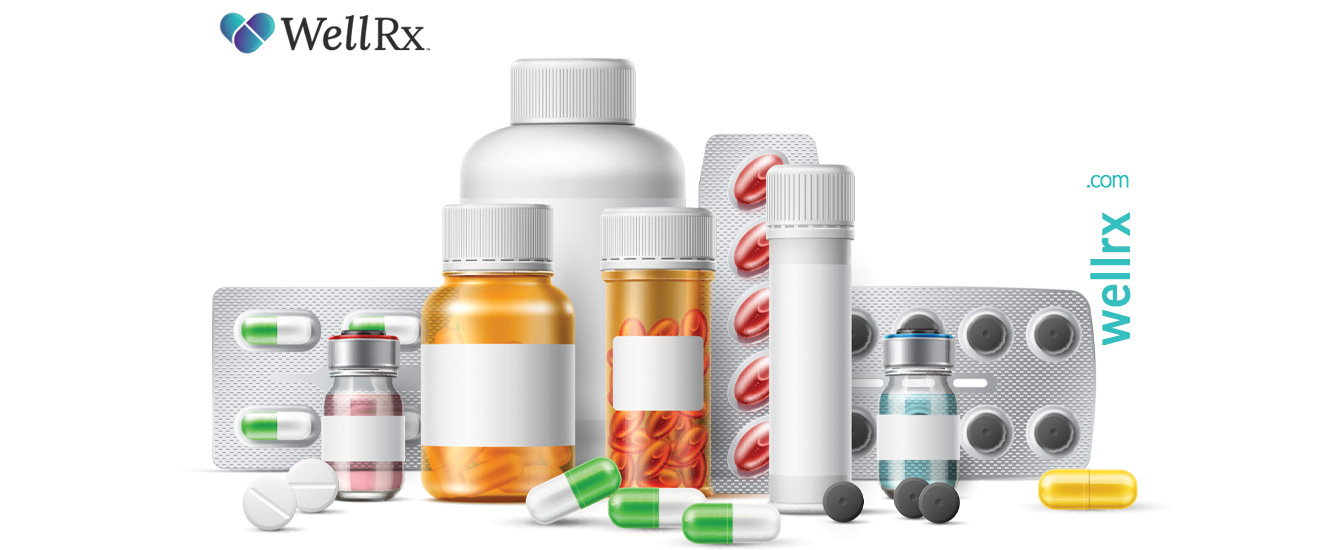If you’re pregnant or you’ve recently had a baby, then you know that it’s an exciting and overwhelming time in your life. Several tests are recommended and performed at birth and throughout childhood from bloodwork to hearing tests and developmental screenings. You may be wondering what these tests are and why your child needs them.
Screening tests performed in the hospital
Before your newborn is discharged from the hospital, the medical team will perform several tests including a hearing screen, a congenital heart disease screen, bilirubin screening, and newborn genetic and metabolic screen (frequently called PKU).
Hearing screening
Hearing loss can be associated with developmental delay, especially speech, language, and cognitive development. The American Academy of Pediatrics (AAP) and the American Academy of Family Physicians (AAFP) recommend universal screening for hearing loss in all newborns. This test is performed by placing headphones over your infant’s ears and putting sensors (stickers) on the head. If your child fails the initial screening, the screening may be repeated, and/or other tests may be recommended. All babies with hearing loss should be referred to a specialist for further evaluation and intervention because the earlier the child receives care, the less impact hearing loss may have on their development.
Congenital heart screening
Some congenital heart problems can be seen on ultrasound during pregnancy, but not all. Routine screening for congenital heart disease can help identify children who need treatment before they are discharged from the hospital and can help prevent serious consequences and even death should the heart disease go untreated. Congenital heart screening can be performed by measuring the oxygen level in the right hand or foot. If the screening test is abnormal, an ultrasound of the heart may be recommended for further evaluation. Children with congenital heart disease are typically followed by a cardiologist who specializes in these conditions.
Bilirubin screening
In the womb, babies have to get oxygen from the placenta, which is a relatively low-oxygen environment. Once they are born they transition to breathing on their own and their blood gets oxygen from the lungs, which is a relatively high-oxygen environment. To facilitate this change, the baby’s body must change the type of hemoglobin from fetal hemoglobin to adult hemoglobin. The breakdown of hemoglobin can result in a buildup of bilirubin. High levels of bilirubin can cause long-term problems including kernicterus (a condition that causes neurologic dysfunction). Bilirubin screening can be done using a device called a transcutaneous bilirubinometer, a device that measures bilirubin by light through the skin. If the bilirubinometer detects elevated levels, confirmatory testing may be done through a blood draw by heel poke or from a vein.
Genetic and metabolic screening
Newborn genetic and metabolic screening evaluates for conditions that can cause developmental problems and other health concerns. The exact tests evaluated vary from state to state, but some are common. These tests are generally performed by doing a heel poke and dabbing blood onto a special piece of paper that is then sent to a state lab for analysis. Many states recommend repeat testing at 1-2 weeks after birth because some of the
Phenylketonuria (PKU)
Phenylketonuria (PKU) is one of the first tests that was done. The testing for this condition began in the 1960s. PKU is caused by changes in the phenylalanine hydroxylase gene. Without this enzyme, phenylalanine can build up and cause developmental problems. Early diagnosis and intervention, which consists of dietary restrictions, can prevent serious health problems.
Congenital hypothyroidism
Congenital hypothyroidism is another condition that is commonly screened for with newborn metabolic testing. Untreated, this condition can lead to developmental delay. Congenital hypothyroidism is the most common treatable cause of mental impairment in children. Children with congenital hypothyroidism can be treated with thyroid medications for at least the first 3 years of life. Congenital hypothyroidism may resolve as children age.
Galactosemia
Galactosemia is a rare metabolic disorder that leaves infants without the ability to process certain milk sugars. Galactosemia can be easily treated with a special diet to prevent multisystem organ dysfunction and death. Different genes are involved with galactosemia, some of which can cause more severe symptoms than others.
Sickle cell disease
Sickle cell anemia is a condition more common in people of African descent but is also seen in other ethnic groups. If diagnosis is delayed, children are more susceptible to certain types of infection. If sickle cell anemia is present, vaccination and prophylactic antibiotics can help prevent severe infections.
Cystic fibrosis (CF)
Cystic fibrosis is present in about 5 in 10,000 children. CF can cause several metabolic conditions including pulmonary disease. Children with CF are prone to digestive problems and are susceptible to many lung conditions. Newer interventions and medications have significantly improved the lifespan of people with cystic fibrosis, and early intervention can help decrease the severity of symptoms, though it will not reverse the disease.
Congenital toxoplasmosis
Toxoplasmosis is a parasite that lives in cat poop, water, soil, and certain foods. The parasite can affect babies in utero. Babies infected with Toxoplasma at birth may not have any signs early in life, but get worse with time. Congenital toxoplasmosis infection can be treated with medication, and children with this condition should be monitored for vision and hearing loss regularly.
Many other tests may be performed depending on the state you live in. For complete information on which tests are performed in your state, visit your state’s Department of Health website.
Birth to five screening tests
In many states, the metabolic screening mentioned above is repeated at your doctor’s office at 1-2 weeks of life. Some of the metabolic conditions may not show up immediately because it can take time for the toxins to build up.
Developmental screening
Developmental screening is recommended at ages 9, 18, and 30 months; however, your healthcare provider will likely ask about developmental milestones at every well-check. Several developmental screening tools can be used. These tools make sure that your child is on track with language, movement, thinking, and social interactions. If there are abnormalities in development, the sooner that they are identified, the sooner interventions can be started to help your child’s development.
The AAP recommends autism-specific screening at 18 and 24 months. Additional screening may be recommended if your child has symptoms of autism spectrum disorder (ASD) or if your child has a sibling with ASD. As with many developmental conditions, ASD is best treated with early intervention.
Behavioral/social/emotional screening
Behavioral health problems can be present in as many as 12-27% of children. Mental health conditions and problems such as ADHD are very common. Many different screening tools evaluate for behavioral, social, and emotional tests.
Screening for iron deficiency
Iron deficiency is common in certain populations including children born premature, with low birth weight, exposure to lead, certain diets, and decreased socioeconomic status. Screening should occur at 4 months and 12 months of age. Repeat testing should occur in high-risk groups at 15, 18, 24, 30, and 36 months of age and yearly thereafter. Iron testing may be performed in older children and adolescents if certain conditions such as heavy menstrual periods are present.
One common cause of iron deficiency in young children is lead toxicity. Lead levels should be screened in any child with iron deficiency or if they live or visit a home or childcare facility built before 1978 or recently renovated. They should also be screened if they live in or visit a building that has been identified as having lead hazards present. Lead was previously used in paint, so if they live in an older home in disrepair, the risks are higher.
Oral health screening
The AAP recommends oral health assessments at six and nine months of age and referral to a dentist at age 12 months. Children should be seen twice a year for dental cleanings, and fluoride treatment should be considered in children who don’t have fluoridated water.
Testing in older children/adolescents
Older children and adolescents should have routine screening for depression and anxiety. Hypertension screening is recommended at least once a year and possibly more often in children with risk factors such as obesity. Routine lipid testing is recommended for children between 9 and 11 years old and again between ages 17 and 21. In higher-risk individuals, such as those with diabetes or obesity, more frequent screening may be recommended.
Your child’s healthcare provider may recommend additional screening depending on risk factors such as a family history or other conditions specific to your child.
If your healthcare provider has diagnosed your child or any other family member with a health condition, you may be wondering how to save money on your medications. Consider using our WellRx prescription discount card. Some people save a little. Some people save a lot and prices vary across zip codes. Even pharmacies across the street from each other can have huge price differences! ScriptSave has been helping consumers save on their prescriptions for 25 years.
References:
https://www.aafp.org/pubs/afp/issues/2010/0115/p185.html
https://www.cdc.gov/ncbddd/hearingloss/parentsguide/understanding/newbornhearingscreening.html
https://www.cdc.gov/ncbddd/heartdefects/screening.html
https://www.aap.org/en/patient-care/congenital-heart-defects/newborn-screening-for-critical-congenital-heart-defect-cchd/#:~:text=Pulse%20oximetry%20can%20accurately%20detect,systemic%20or%20pulmonary%20blood%20flow.
https://www.stanfordchildrens.org/en/topic/default?id=blood-circulation-in-the-fetus-and-newborn-90-P02362
https://www.ncbi.nlm.nih.gov/pmc/articles/PMC6956966/
https://www.aafp.org/pubs/afp/issues/2010/0815/p408.html
https://www.stanfordchildrens.org/en/topic/default?id=newborn-metabolic-screening-160-57
https://www.ncbi.nlm.nih.gov/pmc/articles/PMC3872591/
https://www.mayoclinic.org/diseases-conditions/phenylketonuria/symptoms-causes
https://www.ncbi.nlm.nih.gov/pmc/articles/PMC3608007/
https://www.childrenshospital.org/conditions/galactosemia
https://www.aafp.org/pubs/afp/issues/2008/0501/p1300.html
https://www.ncbi.nlm.nih.gov/pmc/articles/PMC7075106/
https://www.mayoclinic.org/diseases-conditions/cystic-fibrosis/symptoms-causes/
https://newbornscreening.hrsa.gov/conditions/congenital-toxoplasmosis
https://www.uptodate.com/contents/screening-tests-in-children-and-adolescents
https://www.cdc.gov/ncbddd/actearly/screening.html
https://www.cdc.gov/ncbddd/autism/hcp-screening.html
https://med.emory.edu/departments/pediatrics/_documents/uhi/behavioral-health-screening-in-primary-care.pdf
https://www.ncbi.nlm.nih.gov/books/NBK395583/













 Store & manage your medication list
Store & manage your medication list Medication pricing updates
Medication pricing updates Pill & refill reminders
Pill & refill reminders Medication journal & mood log
Medication journal & mood log